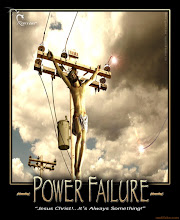Justice not delayed for the powerful
The Supreme Court through a series of observations recently admitted that Indian judiciary was ignoring the common man while giving priority to rich, powerful and influential people in hearing cases and some serious introspection was called for in this regard.
Mail Today – 15 hours agoBy Harish V. Nair
NEW DELHI: SC admits common man is being ignored as high-profile cases get priority in courts. SPEEDY trial in cases involving rich and powerful accused has perturbed not only the common people but also the apex judicial body of the country.
The Supreme Court through a series of observations recently admitted that Indian judiciary was ignoring the common man while giving priority to rich, powerful and influential people in hearing cases and some serious introspection was called for in this regard.
There are 65,000 cases pending in the Supreme Court, total of 42 lakh cases in high courts and a staggering 2.9 crore in trial courts.
"Look at the tragedy in our country. Decision was rendered in January this year by the trial court and appeal has been heard and arguments completed. Here, appeals filed in the year 2005 against death penalty are not heard by us. Sometimes, I wonder at my system. Here is an appeal of the year 2013 which gets a quick hearing. In how many cases are we doing so? That's why poor man feels that look the system cares only for known persons and the unknown persons (common man) gets ignored," a bench of justices H. L. Dattu and SJ Mukhopadhaya said on September 12 while dismissing the plea of former Haryana chief minister Om Prakash Chautala.
Chautala, who is serving a ten- year jail term in the teacher recruitment scam, had sought extension of his interim bail.
Another bench of Justice B. S. Chauhan and Justice S. A. Bobde while dismissing the anticipatory bail plea of IPS officer P. P. Pandey, accused in Ishrat Jahan fake encounter case, on August 12 said: "We are sorry to say that the court's time is being used by senior advocates and big criminals. We can say on oath that only 5 per cent of the time is being used for common citizens, whose appeals are waiting for 20 or 30 years. This court has become a safe haven for big criminals. You come here for the sixth or eighth time for anticipatory bail and we should hear as if we were a trial court."
THE ISSUE was first brought to the fore in December 2011 by a Delhi High Court judge S. N. Dhingra who said "…. criminal justice system needs overhauling so that the constitutional mandate of equality before law is made meaningful and it should not be the case that higher courts are kept occupied by the person with money or power, as is the case today".
Justice Dhingra issued an order that in all such cases where appellants are in jail and sentence is not suspended, courts should fix a time limit for disposing of such appeals.
Lawyer Manish Khanna, who has been fighting for speedy trial for the poor, said: " It is a well know fact that hearing pattern in most courts change when petitions of the rich and powerful come up. Senior advocates who appear for them get special attention."
Khanna, through an RTI query sought to know recently if the high court, after justice Dhingra's order put in place any policy on giving speedy hearing to persons in jail and the reply he got was "issue under submission to the authorities".
The issue was first brought to the fore in December 2011 by a Delhi High Court judge S. N. Dhingra.
Reproduced From Mail Today. Copyright 2013. MTNPL. All rights reserved.




No comments:
Post a Comment